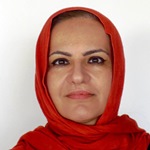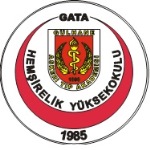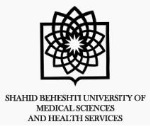Day 3 :
- Pain Management
Location: Narita
Session Introduction
Pamela V O Neal
University of Alabama in Huntsville, USA
Title: Palliative Practices to promote airway clearance
Time : 10:00 - 10:25

Biography:
Pamela V O'Neal, PhD, RN is Associate Professor of College of Nursing. She teaches the undergraduate and the doctor of nursing practice programs. She has a research focus in assessing suctioning processes to improve patient outcomes and is Co-Director of the Clear Project. She has experience in both laboratory and clinical research related to suctioning with newborns, adults, and older adults. She is Past-President of the North Alabama Chapter of the American Association of Critical Care Nurses, Chair of the Institutional Review Board for UAH, and was recognized as the Outstanding Faculty in the College of Nursing.
Abstract:
Palliative care addresses pain and suffering across the lifespan with any type of illness and is inclusive of all age groups. National Hospice and Palliative Care Organization (NHPCO) estimated as many as 1.5 million patients in 2013 received hospice services. The largest population of hospice services were mostly female (55%) and age 85+ (41%); however, 0.4% were less than 24 years, which indicates young adults, children, and infants. The top non-cancer diseases requiring palliative services were dementia (15%), heart disease (13%), and lung disease (10%), and all these diseases involve sequelae associated with dysphagia, dyspnea and respiratory compromise. Oral secretion accumulation and viscous secretions contribute to pulmonary distress. Oral secretions can migrate to the pharyngeal area and transit to the lower airways contributing to pneumonia. Oral secretion removal is critical; especially when someone at the end of life is no longer able to functionally manage their own secretions. The viscosity of oral secretions can influence secretion removal. Current research involves the design and fabrication of a microfluid viscometer to assess viscosity of oral secretions in order to effectively evacuate these secretions. Removal of viscous and non-viscous oral secretions promotes effective airway clearance, relieves deleterious effects of poor oxygenation, and provides comfort support though manual secretion removal with a soft-tipped suction device. The purpose of this presentation is to focus on integrating palliative care practices to assist children, adults, and older adults in promoting airway clearance, managing respiratory compromise, and providing supportive pulmonary care at the end of life.
Malhotra S K
Post Graduate Institute of Medical Education and Research, India
Title: Transdermal approach to pain relief: Present and future
Time : 10:25 - 10:50

Biography:
S K Malhotra completed MD (Anaesthesia) from Postgraduate Institute of Medical Education and Research Chandigarh (PGIMER), India. Presently he is designated as Professor, Department of Anaesthesia and Intensive Care, PGIMER, Chandigarh, India. He was a Past President of Indian chapter of International Trauma Anesthesia and Critical Care Society and Member of several scientific societies related to Anaesthesia and on Editorial Board of three Anaesthesia and Critical Care journals. He has published about 104 scientific papers in both national and international journals. He was the examiner and expert to 8 universities as well as National Board of Examination. He has special interests in airway management, acute pain services and trauma.
Abstract:
The management of chronic and acute pain relief has always been a challenge for the anaesthesiologists. One of the various modalities of pain relief is transdermal approach. The goals of transdermal pain relief are; firstly, to deliver local concentrations of medication higher than possible through the oral or parenteral routes; secondly, to reduce side effects and drug interactions through avoidance of systemic absorption and renal and/or hepatic exposure. There are various advantages of pain relief through transdermal approach. There are minimum GI upsets with drugs such as opioids and NSAIDS, action is local and site specific, easy to titrate for an individual patient, rapid onset of action and high concentration of the drug in the tissues that requires analgesia. Moreover, transdermal is the perfect route for nil per os patients. Transdermal medications are ideal for conditions like postoperative pain, osteoarthritis, musculoskeletal pain, localized or acute Injury, diabetic neuropathy, neuropathic pain and fibromyalgia. More stress is being laid on efficacy and safety of the transdermal delivery. Also, more precise drug delivery, with duration lasting for longer days are being investigated.
Jean Paul Rwabihama
niversity of ParisÂEst Creteil and Geriatric, France
Title: Rights of elderly patients at the end of life: The French experience
Time : 11:05 - 11:30

Biography:
Jean Paul Rwabihama is a Medical Doctor in internal medicine from University of Rwanda and Specialist in Geriatrics after 5 years of training in Paris. He received Master of Science in Eleventh Law at Paris 7 University and completed his PhD in HICS and Public Health at the Het Toulouse University (France). He was a PhD fellow at the Kennedy Institute of Ethics of Georgetown University (USA). Currently, he is a Senior Consultant in Geriatrics at Paris Public Hospital (APHP) and Researcher at the Clinical Epidemiology and Ageing Unit, at University of ParisEst Creteil.
Abstract:
The management of terminally ill patients has been improved by the accessibility of palliative care since 1999 in France. The relatives or loved ones were therefore allowed to assist the dying patient until the end. The Kouchner law adopted in 2002 has established the informed consent process but the most important regulation is the Leonetti law. The law of 2005 concerning the rights of patients at the end of life permits with-holding and withdrawing of treatment for patient at the terminal phase with some limitations such as few highly publicized individual situations. During the past 5 years, the debate about legalization of euthanasia and physician assisted suicide came up to public through media in France. Several national institutions expressed their opinions and official assessments of the Leonetti law revealed a misunderstanding of its spirit among healthcare providers. French population was also unfamiliar of this law published almost 10 years ago. According to the recent Parliament reports, the legislator plans to strengthen this law and then advance directives will become binding in France. This project raises several ethical issues among healthcare providers, such as burnout, especially for those who working in palliative care setting, hospice and long term care department. As it is well recognized, the culture of palliative care is not rather implemented in France, death is still a society's final taboo and continuing medical education has an important role in extending palliative care in order to improve quality care at the end of life for elderly.
Nasreen Panjwani
Aga Khan University, Pakistan
Title: Physicians’ and nurses’ perspectives on the importance of advance directives in tertiary care hospitals of Karachi
Time : 11:30 - 11:55

Biography:
Nasreen Panjwani has completed her MSc in Nursing from the Aga Khan University School of Nursing and Midwifery, Karachi, Pakistan. She is currently working as a Nurse Manager for surgical areas at the Aga Khan University Hospital, Karachi. Her past experience is of an RN in different critical care areas such as the Emergency Department and Post Anesthesia Recovery Room. She has also worked at the Aga Khan University School of Nursing and Midwifery, Karachi, Pakistan as a Senior Instructor. She has published one article in a reputed journal.
Abstract:
This study explores the physicians’ and nurses’ understanding about Advance Directives (ADs) and identifies their perspectives on its importance, in the context of Pakistan. An exploratory descriptive method was adopted and a purposive sample, consisting of six physicians and seven nurses, was selected from two tertiary care hospitals in Karachi. Data was collected from participants, using a semi structured interview guide and was coded and categorized manually. Analysis of data led to four categories, such as roles of physicians and nurses in the end of life care, challenges they faced while taking end of life care decisions; their perspectives about ADs, and the scope of acceptability of ADs in Pakistan. This study revealed that patients’ families and physicians usually take decisions for patients’ end of life care. Majority of participants acknowledged the usefulness of ADs. However, they explicated some issues that may be faced in implementing ADs, particularly the issue of non-disclosure of diagnosis to the patient in the culture of Pakistan, concerns about the tedious legalization process involved, and the problem of forged documents. Participants recommended the establishment of palliative care services before the execution of ADs. This study indicated viability of ADs; however, a wider exploration would be required in terms of study population. Furthermore, reforms to support this concept would be required in systems, structure, legal policy, and training of health care professionals. Besides these transformations, promotion of public education about the advantages of ADs could enhance their acceptability among the general population.
Gonul Kurt
Gulhane Military Medical Academy, Turkey
Title: Ethical decision-making practice of nursing students in end-of-life care
Time : 11:55 - 12:20

Biography:
Gonul Kurt R N has completed her Master’s degree in 2007 from Gulhane Military Medical Academy, Institute of Health Sciences Obstetrics and Gynecologic Nursing Program. She has completed her PhD from Gulhane Military Medical Academy, School of Nursing in 2012 and Post-doctoral studies from Gulhane Military Medical Academy, School of Nursing. She is working in Gulhane Military Medical Academy School of Nursing as a Lecturer. She has published 8 papers in national and international journals and she has authored and coauthored more than 48 abstracts.
Abstract:
Background & Aim: Ethical problems in Intensive Care Units (ICUs) are common, especially when caring for patients at the end of life. Thus, medical professionals who work in ICUs must have the ability to analyze, evaluate and make decisions in ethical issues that are relevant to their duties, making use of ethical theories and principles. We aimed with this study to determine the ethical decision-making practice of nursing students about end-of-life care in ICU. Methods: This descriptive study was carried out between January-June 2015 with nursing students who work with dying patients in ICU. The study sample consisted of a total of 87 student nurses. The data in the study were collected using the Data Collection Form, and Nursing Dilemma Test (NDT) to determine the ethical decision-making level of the students. The study data were analyzed with SPSS for Windows V.15.0. The independent sample t-test was used for the statistical comparison of the data. A p value of <0.05 was regarded as statistically significant. Results: Most of students (94.3%) stated that they faced with the dying patients during clinical applications for the first time. Students stated that they often felt sadness (86.2%) while caring the dying patients. Most of the students (58.6%) think that the aim of end-of-life care is relieved pain of dying patients. The Nursing Principled Thinking level (48.57±5.66) was above average, while Practical Considerations level (16.78±3.03) was nearly at the level of average. These findings showed that students notice to decide taking into account the ethical principles if there is any ethical issues and students who decide ethical issues take into account environmental factors, relatively. It was found that nurses were familiar to the similar nursing dilemmas (16.79±2.25). While deciding about ethical issues, the students who have experienced the death of a person from the family had significantly lower take into the account of environmental factors than the others (p<0.05). Conclusion: We found that nursing students respectively notice to decide taking into account the ethical principles and environmental factors while decide any ethical issues.
Camelia Rohani
Shahid Beheshti University of Medical Sciences, Iran
Title: The role of sense of coherence, spirituality and religious coping as predictors of HRQoL during 12-month after pre-diagnosis of breast cancer
Time : 12:20 - 12:45

Biography:
Camelia Rohani completed her MSN in community health nursing at the Iran University of Medical Sciences. Her doctoral education in nursing was completed in 2012 at the Karolinska Institute, Stockholm, Sweden. Her dissertation focused on the Health-Related Quality of Life in women with breast cancer in Iran, with an emphasis on the psychometrics of various instruments and clinical study. Presently she is teaching nursing and doing research focusing on the sense of coherence at Shahid Beheshti University of Medical Sciences in Tehran.
Abstract:
When measuring HRQoL in cancer patients, determining inner resources like sense of coherence (SOC), spirituality and religious coping is important. SOC has received a great deal of attention in healthcare research in recent years. It is defined as an individuals’ global view of life, based on how comprehensible, manageable and meaningful life appears to them. This study investigated the predictors of HRQoL dimensions at the 12-month follow-up in a sample of Iranian women with breast cancer. The results showed that, after controlling for demographic variables and baseline ratings of HRQoL dimensions, the SOC is the most important predictor of HRQoL changes during the 12-month follow up, predicting almost all dimensions of HRQoL. Spirituality and religious coping were non-predictors, maybe depending on the scales used, which will be discussed. This underscores that the degree of SOC as an overall view of life and coping capacity, may be more important than spirituality and religion, as a general predictor for HRQoL changes. These results support the importance of collecting data concerning HRQoL and SOC together early at the pre-diagnosis period of breast cancer and during follow-ups. Gathering SOC and HRQoL data can assist in early detection of women who may be at greater risk for HRQoL impairments and have a lower ability of psychological adaptation to disease and treatment. Nurses and clinicians should consider the concept of SOC as a potential pathway for successful management of individualized care plans in early palliative care in breast cancer patients.




